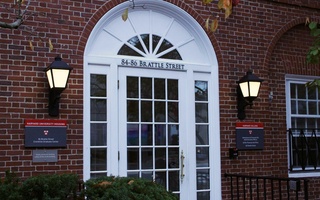The Justice Department’s decision to investigate Harvard’s admissions practices for possible discrimination against Asian Americans has left some students feeling disappointed and worried about the future of affirmative action at the University.
The Department publicly vowed to examine Harvard’s admissions process on August 2. Justice Department spokesperson Sarah Isgur Flores said at the time that the investigation will focus on a single complaint filed in 2015 by 64 Asian-American groups that alleges Harvard unfairly denied admission to qualified Asian-American applicants.
In wake of this news, many Harvard students—still scattered around the world awaiting the beginning of the academic year on Aug. 30—took to the Internet to make their thoughts known.
Damian Richardson ’20 called the investigation “[President Donald] Trump’s shameless affirmative action attack” in an opinion piece for USA Today. Several other students also critiqued the Department’s plan in op-eds published by The Crimson. Still more undergraduates—as well as alumni—opined about the investigation in posts on Facebook and Twitter.{shortcode-8168a8b6a093810239dbf85d536abc874093b4e5}
“It has sparked a lot of discussion on campus and on social media,” said Nawal K. Arjini ’18, who previously filed to intervene in support of Harvard in a separate, ongoing lawsuit that accuses the University of race-based discrimination in its admissions process.
Arjini said she was personally unsurprised by the new investigation “given who the Department of Justice is headed by”—United States Attorney General Jeff Sessions, who has drawn criticism for his record on civil rights issues and his opposition to legislation authors say advance the rights of women and LGBTQ individuals. But, Arjini added, she is “really scared” of the investigation’s potential outcome—she worries it may lead to the demise of race-conscious admissions at Harvard.
“I think for many reasons affirmative action is vitally important to the University, to the community of the University, to everyone’s educational and social experiences, and to larger system problems of addressing questions of institutional racism,” she said.
Arjini said she thinks student discussion about affirmative action spurred by the investigation “is a really good conversation to have,” but not if it comes at the expense of losing affirmative action.
Sidney C. Li ’19, who co-coordinates an undergraduate task force that advocates for more Asian and Pacific American curricular offerings at Harvard, was broadly critical of the Justice Department investigation but also said he thought the move might have a silver lining. Li said he believes one “good thing” the examination may produce is “further knowledge of the statistics” surrounding Harvard’s admissions process.
Still, Li said he did not think additional data—or renewed campus debate—was likely to sway most Harvard students’ opinions on the issue.
“I think most of the people I know at Harvard, including Asian Americans, see there is a lot more to being a student here than just having good grades and everyone appreciates the diversity here and wishes there was more,” he said.
—Staff writer Hannah Natanson can be reached at hannah.natanson@thecrimson.com. Follow her on Twitter @hannah_natanson.
Read more in News
Harvard Appeals Unionization Vote Ruling to National NLRBRecommended Articles
-
Contextualizing Notions of Fairness in College AdmissionsThere is a significant portion of the Asian community who believes that people like me are getting the upper hand in college admissions.
-
Harvard Should Vigorously Defend Affirmative ActionWhile we hope that Harvard complies with its legal obligations in this investigation, we also expect the University to make a compelling case for how affirmative action positively serves the institution.
-
 An Inflection Point: High Stakes as Harvard Admissions Trial Approaches
An Inflection Point: High Stakes as Harvard Admissions Trial Approaches -
 Kavanaugh’s Nomination May Jeopardize Affirmative Action, Experts Say
Kavanaugh’s Nomination May Jeopardize Affirmative Action, Experts Say -
Students for Fair Admissions and Harvard Both Got It WrongLet us oppose discrimination and lift each other up at the same time.













